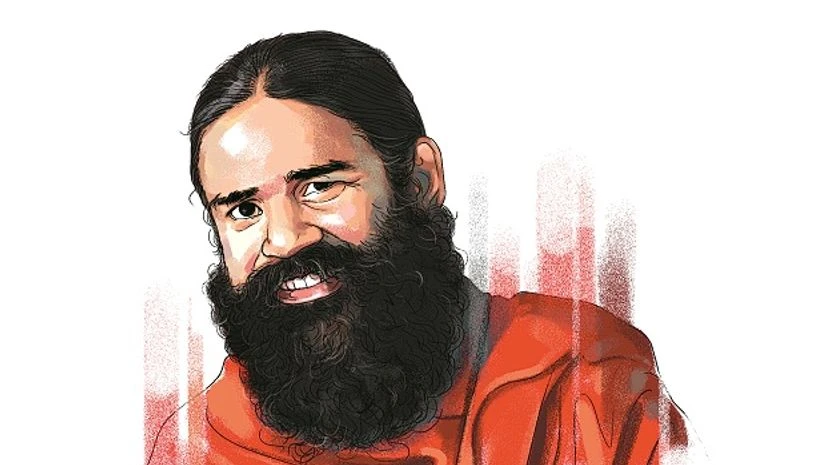MARKETING GURU
The year 2016 has been a significant one for the 51-year-old yoga-instructor turned spiritual guru (a profession known as “godman” in India) who calls himself Baba Ramdev. He rarely kept himself outside the spotlight, holding press conference after press conference on all manner of issues: corruption, black money, demonetisation, not to forget energetic promotion of his pet project — the consumer goods company Patanjali.
It was, in fact, the high-decibel “swadeshi” pitch of a man his disciples choose to call a visionary that proved a disruptor in the hard-nosed world of the fast-moving consumer goods (FMCG) market. From challenging multinationals to compete with products from the house of Patanjali to blaming them for the outflow of millions of rupees from India as repatriated profits, Ramdev ensured that his brand stayed top of the mind with middle class consumers.
Reiterating his vision on how big Patanjali could become in the near future he was heard saying loud and clear: “Ab tak Colgate ka toh gate khul gaya, Nestlé ka toh panchhi urne wala hai, Pantene ka toh pant gila hone wala hai; aur do saal me, Unilever ka lever kharab ho jayega (By now, Colgate’s gate has opened; Nestlé’s bird has flown [a reference to Nestlé’s logo], Pantene’s pants are going to get wet, and in two years, Unilever’s lever will fail),” Ramdev said at a press conference in Delhi on April 27.
Announcements from Patanjali Group, which Ramdev had co-founded with his close disciple Acharya Bal Krishna, had in fact set the tune early in the year when the two announced that the group’s flagship entity Patanjali Ayurved clocked Rs 5,000 crore in sales during 2015-16. The number was enough to draw attention of the national media and stakeholders of the consumer goods industry. It meant that the firm, incorporated 10 years ago in 2006, had become the eighth largest FMCG firm in the country by annual revenue, overtaking many prominent names such as GlaxoSmithKline Consumer Healthcare, Colgate-Palmolive and Emami.
Also Read
In fact, disruption remained a key weapon for Patanjali to shake the market. It not only launched a slew of products in branded FMCG market, but also ventured into many new categories. Currently, Patanjali is present in nearly 25 categories and its portfolio ranges from oats, jams, ketchup, corn flakes, shaving gel, body lotion, shampoos, hair conditioner, face pack, body moisturiser, lip balm to sun screen cream — you name it. And, to add to the woes of its competitors, Patanjali launched beauty care products like fairness cream, body cleansers and even anti-ageing cream.
During the year, it also expanded its retail reach rapidly — in the general trade format, in modern retail and on the online space. E-commerce players like Amazon, Flipkart and Big Basket, all major modern retail chains, and nearly two million brick and mortar outlets now sell Patanjali products. Ramdev is now eyeing shelves in three million retail outlets in 2017 for Patanjali to capture.
Protection of indigenous cows would be an important part of his version of Swadeshi in the coming years, Ramdev said in August. And, the firm plans to set up four mega-cow shelters across India with an investment of Rs 500 crore. It is also coming up with Swadeshi jeans (yes, clothes made of jeans) as Ramdev is keen on ending multinationals’ dominance over this quintessentially American garment. A number of new food parks are also underway in Nagpur (Maharashtra), Greater Noida (UP), Sonitpur (Assam) and Jammu (J&K), which will help strengthen Patanjali’s grip over the market, as its supply struggles to match demand currently.
Ramdev, who had been a vocal supporter of Prime Minister Narendra Modi, was quick to jump into action as criticism over the note ban grew louder and is expected to be the part of the action in 2017. In short, the hyper-active baba is here for the long haul. Call it his charisma or the “virtue of yog” — as he himself put it.

)
